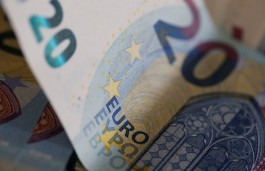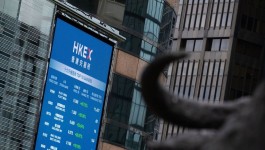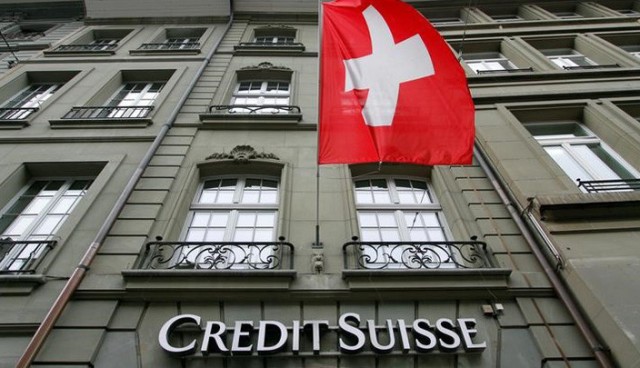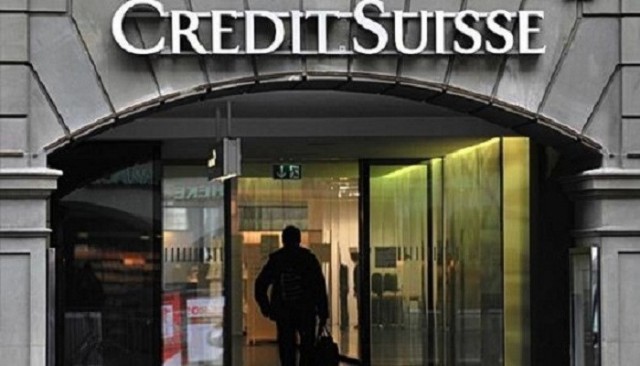The Credit Suisse financial group is facing difficult conditions, after a series of scandals, and its value in the stock exchange fell to less than a third within a year and a half.
Soon, the current situation of Credit Suisse is linked to what happened at the beginning of the global financial crisis with the collapse of the American bank Lehman Brothers, the first major victim of the financial crisis that swept the world in 2008-2009.
According to Arab Net, at the end of September, the European Committee on Institutional Risks of the European Central Bank issued an unprecedented warning in more than ten years to the European financial sector, calling on banks to prepare for extreme risk scenarios that have increased the likelihood of their occurrence since the beginning of the year.
However, experts recommended not to give in to panic, considering that the second largest Swiss bank and the European banking financial system as a whole are better equipped to face a crisis than they were at the beginning of the year, according to Agence France-Presse.
At the outbreak of the 2008 Lehman Brothers crisis, the administration of then-President George W. Bush decided to let him drown in the hope of setting an example, without appreciating all the possible consequences.
The bankruptcy of the huge company raised fears in the market about a new domino effect, and the possibility that other institutions would follow suit, which exacerbated the difficulties and prompted many countries to intervene. In this context, the Belgian-Dutch company Fortis was dismantled and its Belgian subsidiary was placed under the supervision of the French bank BNP Paribas.
Most importantly, countries were forced to take urgent measures to rescue many institutions that are too big to allow their fall, as if they were to fail, they would have caused the collapse of the entire financial system, including the American insurance company EAG and the French-Belgian Dexia Bank, which eventually did not succeed in overcoming the Greek debt crisis. .
However, these rescue operations were very costly to public finances and paved the way for the debt crisis that followed and imposed the adoption of fiscal austerity policies, especially in Europe.
In the past decade, banks have made enormous efforts to consolidate their resilience in the face of any crises they may face. In this context, the capital adequacy ratio that banks must adhere to to ensure their ability to absorb potential losses has been raised, according to the rules set by the Basel Committee for Banking Supervision, based in the Swiss city.
And Credit Suisse Group announced in its mid-year results issued at the end of July, an solvency ratio of 13.5%. For comparison, this ratio reaches 12.2% for BNP Paribas, 14.95% for the Italian Unicredit, and 13% for Deutsche Bank.
Alain Laurent, an official at Moody's rating agency, confirmed that this ratio of assets, which allows facing unexpected losses, was strongly strengthened after the 2008 crisis, and the method of calculating it was modified in terms of tightening restrictions on banks.
The European Banking Authority also requires 50 major banks on the continent to periodically undergo stress tests. The results of the latest tests published at the end of July 2021 showed that enterprises are able to absorb the consequences of a serious economic crisis without incurring major losses.
Experts sought reassurance about fears of a new domino effect, as Guillaume Larmaro, a partner in Columbus Consulting in charge of financial services, confirmed that the Credit Suisse group remains a solid financial company.
And Vanessa Holtz, France's official at Bank of America, speaking in statements, pointed out that in the event of a crisis, the financial strength of banks is very strong, stressing that the lessons have been well drawn from 2008.
Moreover, in the event of a bank bankruptcy, the European continent now has a framework for exiting the crisis, whatever its size, according to what was confirmed in February by the President of the Spanish Bank of Santander, Ana Putin, who heads the European Banks Lobby.
If governments try as a last resort to disburse funds to save a bank, a new rule is imposed in a first stage on shareholders or major creditors.









































